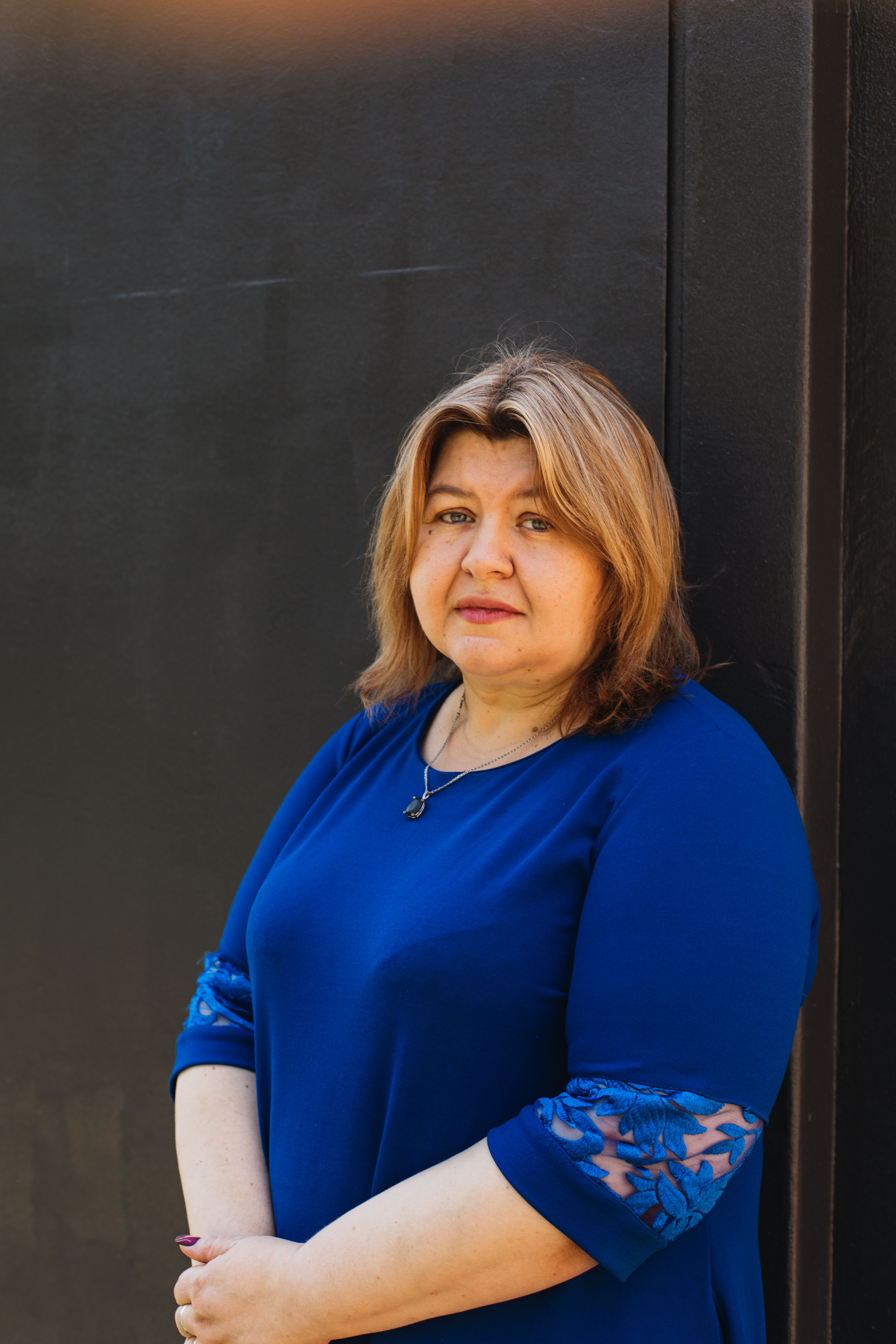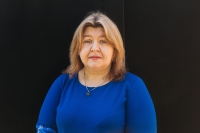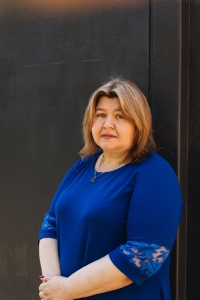I think, March 8, when two pregnant women were brought to me. I don’t know how it coincided, they were from different districts, but their children’s age was the same. But one was a girl, and the other one was a boy. One was Daryna, the other was Roman. Same age, same birthday, and both mothers were pregnant again, and the moms’ pregnancy term was the same. One had a husband, the other didn’t. And these children’s little eyes… As we’re used to, children laugh, they cry, they react to sounds, toys, something. They were 10 months old. The didn’t react to anything, neither to rattle toys nor to phones. Roman, when he saw light (an ordinary lightbulb), he looked at the light in such a way, because he didnt’ see light in the basement. These were innocent children. This war… And very elderly people… When you understand that they spent their entire lives on their children, grandchildren, on their homes, houses. They can’t work or do anything now, they don’t have anything. Anything at all. And they look at you and say, “Where do I go next?” And you don’t know what to say. The only thing you want for when they leave your place is to remember this place with a smile. So that they would say one day, “You know, it was such a place… If I spent three days there, and they didn’t hurt me, they accepted me, and they helped me in whatever way they could.” It's very difficult for people here... I didn't think it was possible... They came and left, right?! They are strangers. When they live for more than two weeks, when we see them off, it is very painful. And we had a man who had suffered a stroke and was a little bit... We had to make his bed personally, because he was wetting himself, peeing. And every morning you come to him, "Vovchyk!". And he's afraid of being scolded. I'm like, "So! Here are your clothes, take a shower!". He's on two walking sticks. Nina Viktorivna is sitting there, one of the servants, the workers, says, "Lena, tell me, we are crying for everyone. Do you think we'll cry for Vovchik? He's been our problem for three months now?" I said, "I won't." Then one day we got [a call] from a Kyiv shelter that they were taking our Vovchik away. He had already... walked up the steps, and he turned around and looked at us... To say that we were crying would be an understatement! We called him later, while his phone was still working, we called him. But now, maybe he's been moved somewhere else. You just get used [to them] very much... When people take away the most precious thing they have. It is their pet. They live with us. And volunteers come and say: Poland, something else, conditions — no animals allowed. And when they say, "Can I leave it with you?" We turn to the city, to Druh, to other shelters where we can transfer them. "I promise you," I say, "it won't be on the street, I'll give it to someone." It's hard when they sit down to say goodbye to them. They have taken out everything they could. But there is no way around it. It's hard. It's hard when old parents are brought in, and the children are offered (there were only two cases) very good conditions. And to accept them, they have to leave their parents behind. At the moment, even if you continue to help them when they leave, they squat down and say, "I'll get a job, and I'll come back for you." Or, "I'll help you when I can." It's impossible to look these parents in the eye. And then, "Did they call you?" you say. "No." It's hard at this job, forgive me. And when they call, "Can I come back to your place?" Then you smile and say, "Yes, if you want to come back." It means you're not doing it in vain. And when your project called. I said, "I think if the volunteers know and remember, then you are not doing it in vain — [you are] in the right place."




